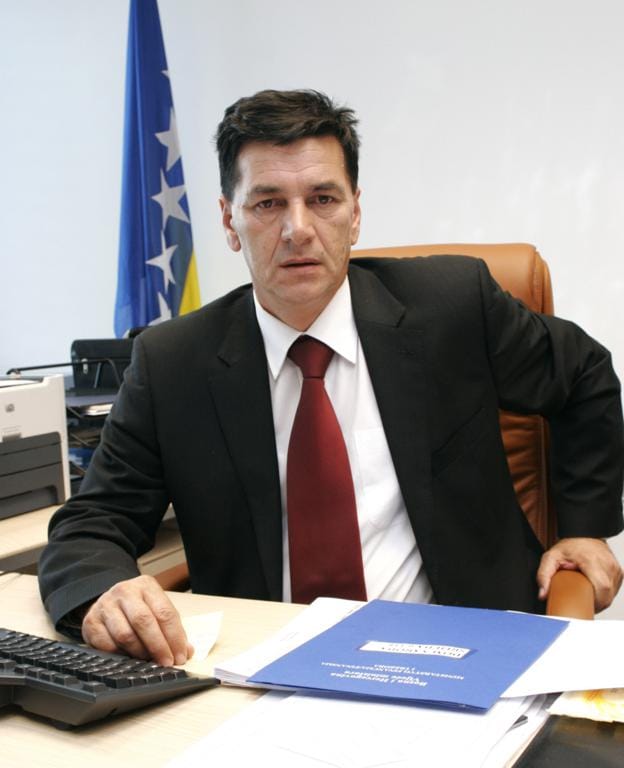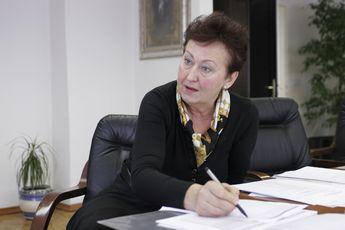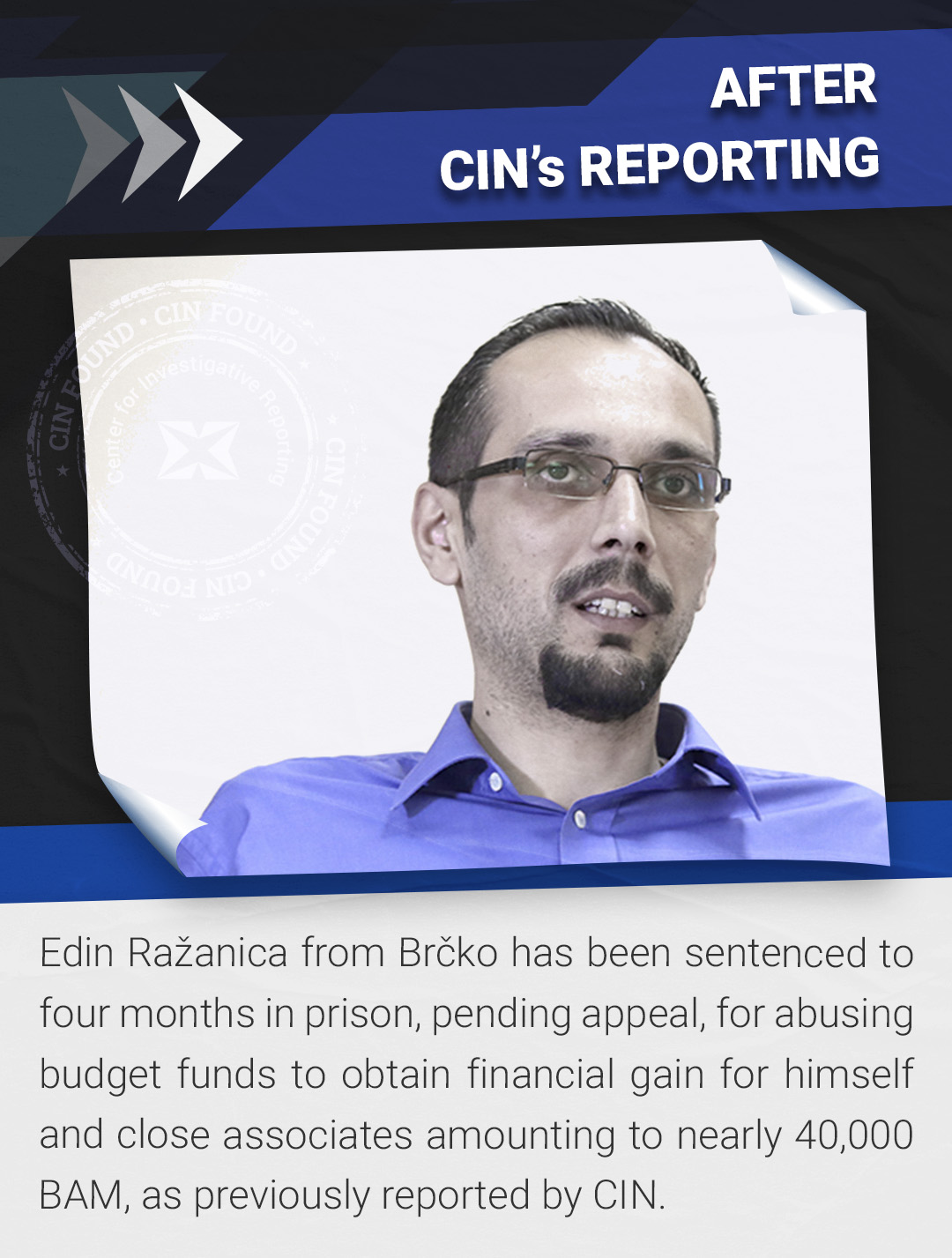A small number of judges and officials in the justice ministries of Bosnia and Herzegovina (BiH), the Federation of BiH (FBiH) and Republika Srpska (RS)`has long retained a monopoly over commission seats which have, in some cases, earned them tens of thousands of KM on top of their salaries.
The Center for Investigative Reporting in Sarajevo (CIN) has examined records on the compensation of more than 3,330 commission members in the institutions of BiH, FBiH and RS, and has taken a close look at nine of the highest paid commission members. The nine have earned a total of at least,406,517 KM between January 2006 and October 2008, in addition to their salaries.
In 2008, authorities tightened the financial oversight of commissions in BiH and RS, which has made work on commissions there less attractive. The situation of commissions appointed by the minities of justice, however, has remained relatively unaffected.
Three senior officials of the BiH justice ministry, Niko Grubešić, Nikola Sladoje and Jusuf Halilagić have together earned at least 127,473 KM on commissions in that time.
According to CIN’s research, Grubešić, the assistant to the BiH Justice Minister was the best paid commissioner at the BiH level over the January 2006 to October 2008 period with 47.400 KM. In these three years he was on eight commissions. The best year for Grubešić was 2006 when he collected 32,038 KM for commission work. That year he held the post of deputy justice minister. Another assistant to the BiH Justice Minister, Sladoje, was paid 41,162 KM for commission work in 2006-2008 period, while the secretary of the BiH Justice Ministry, Halilagić, got 38,911 KM for commission work in that period. Sladoje was on three commissions and Halilagić on four commissions.
Other Perks
The January 2006 to October 2008 average of commission pay was: Grubešić 1,394 KM, Sladoje 1,210 KM and Halilagić 1,059 KM.
Their salaries averaged each month for Grubešić 1,810 KM, Sladoje 1,409 KM and Halilagić 1,675 KM. Each also got meal money on average of 198 KM a month, and Grubešić was also entitled to 400 KM a month of allowance money for being separated from his family.
The average total amount they made each month was 3,802 KM for Grubešić, 2,817 KM for Sladoje and 2,932 KM for Halilagić.
Almost all assistants to the BIH Justice Minister and individual heads of departments are members of the highly paid Administrative Examination Commission. Of 20 commission members, 12 are from the BiH Ministry of Justice. Also, the department heads of this ministry serve on the commissions on judicial examinations or of pardons, and are routinely nominated by their ministries to various commissions including those for drafting bills, for human rights, for the review of decisions on the naturalization of foreigners. On these commissions, they in their own words do work that they say is not part of their regular job with the government.
In a report on commissions in 2007, the BiH Ministry of Finance and Treasury wrote that ‘some top officials within the BiH Justice Ministry are working on three, four or even six commissions.’
Officials Cite Duty, Expertise for Pay

In Halilagić’s opinion there is nothing out of the ordinary in his and other assistants sit on several commissions at the same time, earning tens of thousands KM. Halilagić and his colleagues Grubešić and Sladoje said in interviews that leading legal and administrative law scholars are working in the ministry and that it makes sence for them to be in charge of the examinations.
Grubešić also explained that the commissions were appointed on the direct order of a justice minister or a prime minister.
‘I didn’t join the commission just because I wanted to; I received a written order. And what was I supposed to say – I don’t want to be paid?’ said Grubešić.
Their reasoning does not resonate with others. Fuad Kasumović, the deputy BiH minister of finance and treasury, and a man behind commission reform at the state level, said that it is immoral to earn 30,000 KM or 40,000 KM through commission work on top of a regular salary.
And Ranko Šakota, his colleague, said it is impossible to do a regular job while sitting on several commissions, particularly when the commission convenes after the working hours.
‘If you have been examining, say from 5 p.m. to 10 p.m. you will not be able to do your job the next day’ said Šakota.
Two or More Jobs No Burden?
The strain of combining commission obligations with a full workday has not kept entity officials from sitting on commissions. Their earnings in the commissions were even higher than those of commissioners at the state level.
Kata Senjak, president of the FBiH Constitutional Court was paid 60,511 KM for her work on four commissions from 2006 to August 2008, an average of 1,891 KM a month. That was in addition to her regular salary of 3,800 KM. In average, during that time, she was paid 5,691 KM a month. She is the highest paid commission member in the country. Her monthy salary was increased to 4,400 KM a month after she was appointed court president in September 2008.
Senjak said commission payment were not paid by taxpayers but by candidates taking various exams. She said she earned every penny.
Work on commissions enabled two other judges more than 40,000 KM each during the 2006 –August 2008 period.
Hajrudin Hajdarević, judge of the Supreme Court of FBiH was paid 46,221 KM for commission work during that time, or in average 1,444 KM. His monthy salary was 3,800 KM, so he made a monthy average of 5,244 KM.
Mirko Bošković, at the time judge of the Constitutional Court of FBiH, was paid 44,660 KM for commission work during 2006 – August 2008 period, average of 1,395.60 KM a month. Added to his monthy salary of 3,800 KM, that gave him a monthy average of 5,195.60 KM.
RS Justice Officials Paid Extra
The same situation exists in RS. Marko Rajčević, judge of the RS Constitutional Court, earned 48,300 KM from January 2006 through July 2008 by sitting on commissions. On average that comes to 1,558 KM a month. That money is in addition to his monthly salary of 3,800 KM. His awerage pay during the 2006-2008 period was 5,358 KM a month. According to data CIN collected, Rajčević is the best paid commission member in RS.
Nikola Kovačević, deputy justice minister of RS, was paid 41,352 KM for commission work at the RS and state level in the same period, an average of 1,334 KM a month. His monthly salary was 1,723 KM a month in 2006 and 2007. It increased to 3,000 KM a month in 2008.
Enes Hašić, a deputy ombdasmen of the RS, was paid 38,000 KM for commission work from January 2006 to July 2008, a monthly average of 1,226 KM. His monthy salary was 3,000 KM, so he averaged 4.226 KM a month during that period.
Pay More Than Salary
At the state level, a decision on the criteria for paying members of commissions and other panels that were set up by the Council of Ministers and BiH Ministries was used until mid-2007. And even that decision said compensation should not be more than 50 percent of a commissioner’s salary.
CIN found out that the compensation for some of the officials from the BiH Ministry of Justice even exceeded their monthly salaries. For instance, Grubešić received 32,380 KM in compensation money in 2006 for his work oncommissions, while his annual salary that year was 26,671 KM. Jusuf Halilagić’s received 18,394 KM in salary in 2006, but was paid 23,399 KM for commission work for the same period. In the same year Nikola Sladoje got 16,500 KM for commission work, while his annual salary was 15,362 KM.
New Decision Cools Ardor for Work
The new decision at the BiH level has broken the commissions down into four categories and the maximum amount of compensation was defined. Still, the biggest difference that new rules have made is that the payments must be approved by the BiH Council of Ministers after an advisory opinion by the Ministry of Finances. Because the BiH ministry of finance has subjected compensation to scrutiny and has turned down many payments in the past year and a half, there has been a marked decrease in the amount spent on commissions among the ministries.
In 2008, the state’s nine ministries paid out just 166,640 KM in commission money. By comparison, according to CIN’s research, they paid 809,921 KM in 2006.
Despite the fact that the significant decrease in spending and that many commissions received no remuneration. the state’s system has not collapsed. In RS full time government employees are no longer compensated for work on commissions, but their salaries have gone up, while in the FBiH the rule has not changed – commissioners get both their salaries and the commission fees.







